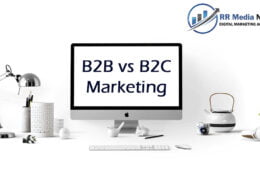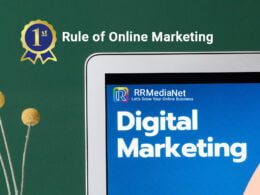In today’s digital age, having a strong online presence is crucial for any business looking to thrive and expand in 2023. With the ever-increasing competition in the online space, it’s essential to employ effective strategies to increase your brand’s visibility. This article will guide you through a comprehensive approach to boost your online presence, attract more customers, and ultimately grow your business.

Understanding the Importance of Brand Visibility
Brand visibility refers to how easily and frequently your target audience encounters your brand online. In an era where consumers turn to the internet for information, products, and services, a strong online presence is vital. Increased brand visibility not only helps you reach a larger audience but also builds trust and credibility.
Optimizing Your Website for Search Engines (SEO)
Choosing the Right Keywords
Keywords are the foundation of SEO. Research and select relevant keywords that your target audience is likely to use in their online searches. Incorporate these keywords strategically into your website content.
Creating High-Quality Content
High-quality content not only attracts visitors but also keeps them engaged. Regularly update your website with informative, valuable, and well-structured content.
Optimizing On-Page Elements
Ensure that your website’s on-page elements, such as meta titles, meta descriptions, and header tags, are optimized for search engines. This helps improve your website’s ranking in search results.
Leveraging Social Media Marketing
Choosing the Right Social Media Platforms
Identify the social media platforms where your target audience is most active. Focus your efforts on these platforms to maximize your brand’s visibility.
Consistent Posting and Engagement
Regularly post content that resonates with your audience and encourages engagement. Respond promptly to comments and messages to build a loyal online community.
Paid Advertising on Social Media
Consider investing in paid advertising on social media platforms to reach a wider audience. Target your ads based on demographics, interests, and behaviors.
Email Marketing Strategies
Building and Segmenting Your Email List
Grow your email list by offering valuable incentives to subscribers. Segment your list to send personalized content and offers to different segments of your audience.
Creating Engaging Email Campaigns
Craft compelling email campaigns that provide value to your subscribers. Use eye-catching subject lines and responsive designs for mobile users.
Measuring and Analyzing Results
Track the performance of your email campaigns using analytics tools. Adjust your strategy based on open rates, click-through rates, and conversion rates.
Collaborating with Influencers
Finding the Right Influencers for Your Brand
Identify influencers whose values and audience align with your brand. Collaborate with them to promote your products or services authentically.
Negotiating Partnerships
Negotiate clear terms and expectations with influencers. Ensure transparency in sponsored content and endorsements.
Tracking the Impact of Influencer Marketing
Measure the impact of influencer marketing by tracking metrics such as engagement, reach, and conversion rates.
Utilizing Online Advertising
Google Ads and Pay-Per-Click (PPC) Campaigns
Run Google Ads and PPC campaigns to appear at the top of search engine results pages (SERPs). Set budgets and keywords carefully to optimize your ROI.
Display Advertising
Use display advertising to showcase your brand on relevant websites and platforms. Create visually appealing ads to capture the audience’s attention.
Retargeting Strategies
Implement retargeting campaigns to re-engage users who have visited your website but didn’t convert. Remind them of your brand with tailored ads.
Creating Valuable and Shareable Content
Blogging and Guest Posting
Maintain a blog on your website to provide in-depth information on your industry and offerings. Consider guest posting on authoritative websites to reach a broader audience.
Video Marketing
Video content is highly engaging. Create informative and entertaining videos to share on platforms like YouTube and social media.
Infographics and Visual Content
Visual content, such as infographics and images, can convey complex information quickly. Use visuals to make your content more shareable.
Monitoring Your Online Reputation
Online Reviews and Reputation Management
Encourage satisfied customers to leave positive reviews on platforms like Google My Business and Yelp. Address negative reviews professionally and aim for resolutions.
Responding to Customer Feedback
Listen to customer feedback and respond promptly. Show your commitment to improving your products or services based on customer suggestions.
Addressing Negative Publicity
In the age of social media, negative publicity can spread quickly. Be prepared to handle crises with a well-thought-out response plan.
Analyzing and Adapting Your Strategy
Utilizing Analytics Tools
Leverage analytics tools like Google Analytics and social media insights to gather data on your online performance. Use this data to make informed decisions.
A/B Testing and Optimization
Continuously test different strategies and content types to see what resonates best with your audience. Optimize your campaigns based on the results.
Staying Updated with Industry Trends
The digital landscape evolves rapidly. Stay informed about industry trends and emerging technologies to stay competitive.
Building Partnerships and Collaborations
Networking with Industry Peers
Build relationships with other businesses and professionals in your industry. Collaborate on projects and share resources.
Cross-Promotions and Joint Ventures
Explore cross-promotional opportunities with complementary businesses. Joint ventures can help you tap into new audiences.
Community Engagement
Engage with your local and online communities. Participate in events, sponsorships, and charity initiatives to build a positive brand image.
Mobile Optimization
Responsive Web Design
Ensure your website is mobile-friendly with responsive design. Mobile optimization is essential as more users access the internet via smartphones and tablets.
Mobile Apps and User Experience
Consider developing a mobile app for your brand. Offer a seamless user experience with easy navigation and fast load times.
Voice Search Optimization
As voice search grows in popularity, optimize your content to appear in voice search results. Focus on natural language and conversational keywords.
Global Expansion and Localization
Targeting International Markets
If your brand has global ambitions, expand your reach by targeting international markets. Tailor your content and marketing strategies to local preferences.
Translation and Localization Strategies
Translate your website and content into different languages to make it accessible to a wider audience. Adapt your messaging to cultural norms.
Cultural Sensitivity and Adaptation
Respect cultural sensitivities and adapt your marketing campaigns to avoid cultural misunderstandings or offense.
Community Engagement and User-generated Content
Building a Loyal Online Community
Nurture a loyal online community of customers and fans. Encourage discussions, user-generated content, and brand advocacy.
Encouraging User-generated Content
Invite customers to create content related to your brand, such as reviews, testimonials, and social media posts. Showcase this content to build trust.
Running Contests and Giveaways
Host contests and giveaways to increase engagement and reward your audience. Encourage participants to share your brand with others.
Diversifying Your Content Strategy
Podcasting and Audio Content
Consider starting a podcast to share industry insights and connect with your audience through audio. Podcasts are a versatile content format.
Webinars and Live Streaming
Engage your audience through live webinars and streaming events. These real-time interactions foster a sense of community.
Interactive Content
Create interactive content such as quizzes, surveys, and polls to engage your audience and gather valuable insights.
Evaluating ROI and Setting Realistic Goals
Measuring the Effectiveness of Your Strategies
Regularly assess the performance of your online marketing strategies. Determine which tactics are delivering the best results.
Setting SMART Goals for Brand Visibility
Establish specific, measurable, achievable, relevant, and time-bound (SMART) goals for your brand’s visibility. Adjust your strategies to meet these goals.
In conclusion, increasing your brand’s visibility online in 2023 requires a multifaceted approach that combines SEO, social media marketing, email campaigns, influencer collaborations, online advertising, content creation, reputation management, and community engagement. By implementing these strategies and staying adaptable in a rapidly evolving digital landscape, you can enhance your brand’s online presence and connect with a broader audience.
FAQs
What is the significance of brand visibility in the digital age?
-
- Brand visibility is crucial as it helps businesses reach a wider audience, build trust, and establish credibility in the online space.
How can I optimize my website for search engines?
-
- To optimize your website, focus on keyword research, high-quality content creation, and on-page SEO elements like meta tags.
Why is influencer marketing effective for brand visibility?
-
- Influencers have dedicated and engaged audiences, making them effective in promoting your brand to a targeted demographic.
What metrics should I track to measure the success of my online marketing campaigns?
-
- Key metrics to monitor include website traffic, conversion rates, social media engagement, and email campaign performance.
Why is community engagement important for brand visibility?
-
- Community engagement fosters brand loyalty and encourages user-generated content, both of which enhance brand visibility.










